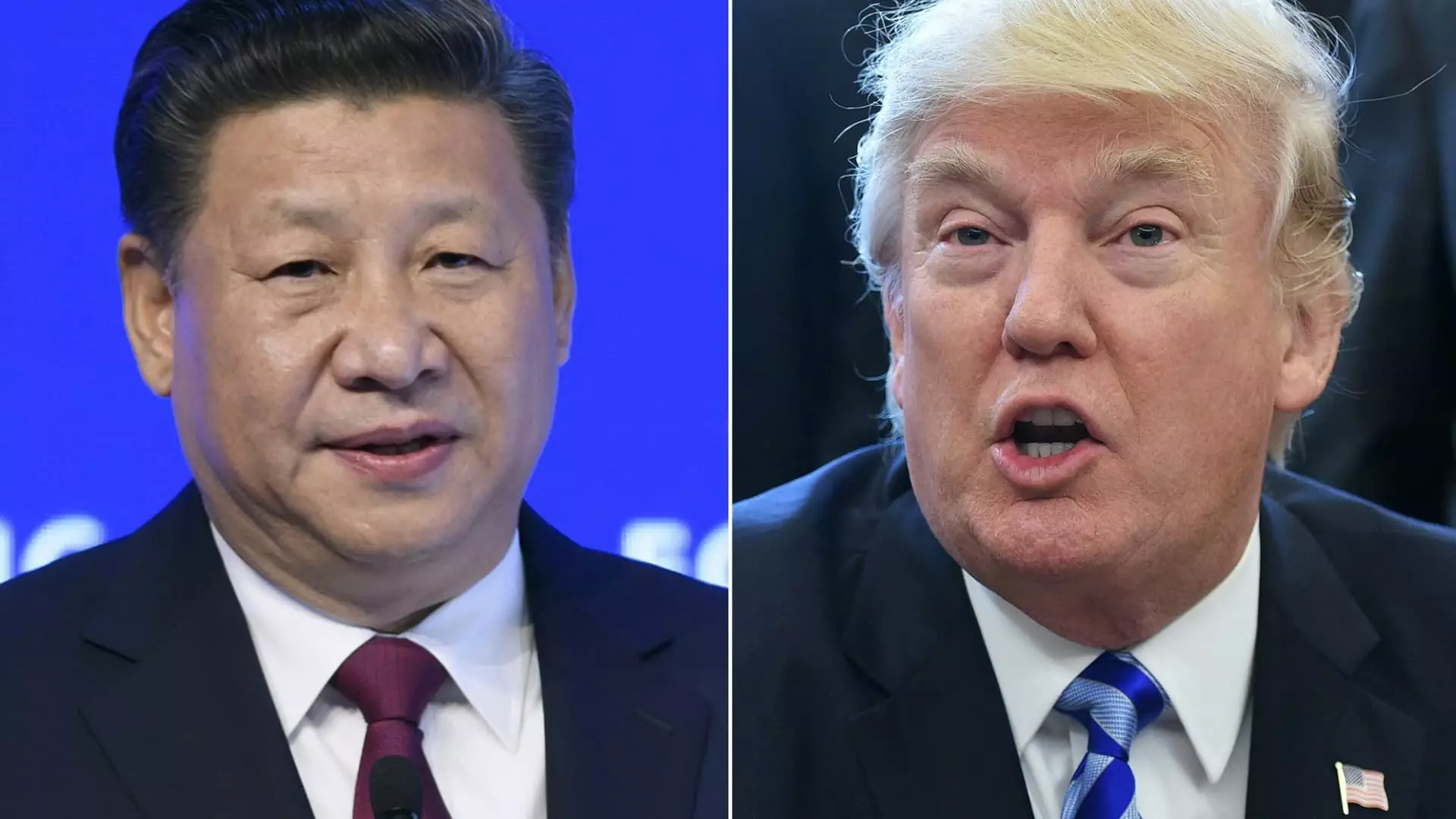In a dramatic proclamation, President Donald Trump has accused China of violating their much-ballyhooed preliminary trade agreement with the United States. With a straightforward comment on social media, he lambasted the nation for backtracking on a deal that purportedly paused retaliatory tariffs between the two economic giants. What does this revelation reveal, beyond the customary political posturing? It unveils a stark reality: diplomacy, especially in the realm of international trade, is riddled with perilous illusions.
The stock market reacted predictably, dipping sharply in response to Trump’s remarks. While one might argue that such volatility is inherent in today’s economic climate, it becomes evident that the American investor’s confidence hangs precariously on the whims of political rhetoric. The assertion by U.S. Trade Representative Jamieson Greer echoed the president’s alarm; he articulated that China’s “slow rolling” compliance is wholly unacceptable. But can we even trust these claims? The echo chamber of political rhetoric often serves to mask deeper complexities and, at times, ulterior motives.
The Hubris of Tariff Strategies
It’s hard not to be critical of an approach that relies heavily on tariffs as a strategic maneuver. Trump’s earlier rhetoric on how high tariffs decimated the Chinese economy, causing factory closures and civil unrest, seemed to paint a picture of righteous vengeance against a long-suspected unfair trading partner. Yet, the portrayal of negotiations as a benevolent “Fast Deal” undermines the sober reality of trade wars. Yes, Chinese factories may have shuttered, but the human cost is often ignored in the quest for economic superiority—a stark testament to the dire consequences of unilateral punitive measures.
The negotiations between the U.S. and China often draw an uncanny parallel to traditional hostage scenarios: one country holding the other’s economy at ransom to negotiate its own favorable terms. In this instance, asserting that one side has “totally” violated the agreement sounds like a convenient scapegoat every time trade discussions hit an impasse. It’s almost as if “Mr. Nice Guy” is just a façade for an administration that thrives on the chaos of confrontation.
Backtrack or Forward Movement?
An intriguing part of Trump’s social media outburst was his acknowledgment of the “good news” that China had stabilized following the “Fast Deal.” The juxtaposition of this “stability” with the subsequent allegation of breach gives off a scent of desperation. One might argue that the strongman approach is inherently flawed; it lacks the nuanced understanding required for such a complex, interconnected global economy. In essence, does aggression yield compliance, or does it breed resentment?
Treasury Secretary Scott Bessent candidly mentioned stalled trade talks, hinting at the growing exasperation within the administration. Diplomatic dialogues require a level of mutual respect, transparency, and most importantly, trust. It raises the question: if America’s position falters every time a minor detail goes awry, can any international agreement wield genuine power? The sentiment among skeptics may very well evolve into a broader distrust that jeopardizes future negotiations, not just with China, but globally.
Political Games and Economic Stability
The recent reference to “TACO trade”—an unfortunate acronym suggesting that Trump tends to chicken out when the stakes are high—sheds light on the circus that often defines this administration’s approach to policy. Political slogans and derogatory phrases take center stage while the ramifications of stalled trade talks ripple through countless sectors of the American economy. In the long run, economic stability cannot thrive in an environment dominated by self-serving bluster and political gamesmanship.
In the grand narrative of U.S.-China relations, it is crucial to move beyond the theater of blame. Citizenship demands a candid evaluation of these dynamics, recognizing that trade is not merely a pawn in a larger game but an essential component of diplomacy that directly affects the lives of millions. Our approach must evolve to facilitate genuine collaboration, which, despite Trump’s proclamations, seems increasingly out of reach.
Understanding the fragility of international relationships and the weight of collective action transcends mere political expediency; it is imperative for ensuring a prosperous economic future, both at home and globally.

Leave a Reply